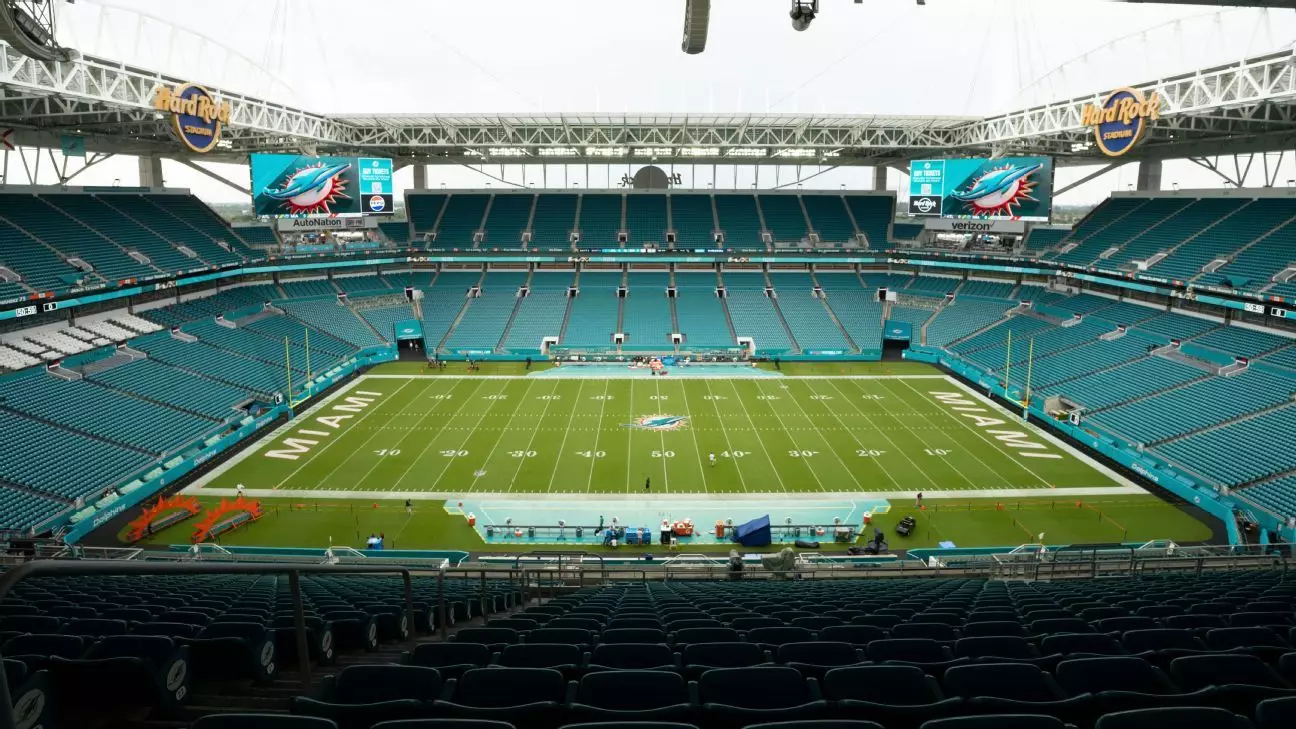With the world of sports constantly evolving, the landscape of soccer continues to expand its boundaries. Recent declarations by LaLiga President Javier Tebas indicate the potential for a groundbreaking shift in how Spanish football is experienced, with aspirations to host a competitive league game in Miami next season, contingent on securing an agreement with the Spanish Football Federation (RFEF). While this idea has been a point of contention in the past, the landscape may be changing, and the implications of such plans deserve closer scrutiny.
The Background of the Proposal
Tebas’s ambition to stage a match in Miami is not entirely novel. The initial concept emerged back in 2018 with a proposed fixture between Barcelona and Girona at the iconic Hard Rock Stadium. However, the idea faced significant hurdles due to strong opposition from both the RFEF and FIFA. These organizations emphasized their resistance to the idea of regular league matches being played outside Spain, positioning themselves firmly against plans that would see the essence of LaLiga stretch across international borders.
The tides may be turning, however, as a recent lawsuit involving Relevent Sports Group—an entity involved in these endeavours—has reinstated interest. Relevent’s legal battles, sparked by FIFA’s attempts to halt their plans, represent a broader struggle for expansion and globalization within soccer. As the landscape of international sport adapts to changing audience demands, it is crucial for LaLiga to reconsider its position within these dynamics.
One of the major hurdles presently stalling LaLiga’s plans for a match in the U.S. is the current leadership vacuum in the RFEF. Tebas pointed out that without a president at the helm, negotiations and agreements are facing delays. This uncertainty not only complicates the logistics involved in organizing an international league match but also raises questions about governance and representation within Spanish football. The disruptive effects of having no clear leadership at this critical juncture could thwart progress for a long-anticipated leap into international waters.
The complications presented by potential strikes from players further complicate the scenario. Rodri, a midfielder for Spain and Manchester City, articulated that players might resort to strike actions as a response to increasing fixture congestion. The upcoming Club World Cup—expanding to a 32-team format next summer—could exacerbate the situation, potentially leading to unrest among players who feel overburdened by their commitments. This contentious backdrop illustrates the precarious nature of Tebas’s ambitions for LaLiga abroad.
Tebas has found himself in a challenging position, where his aspirations for LaLiga’s global reach conflict with the realities facing players. As David Aganzo, head of the Spanish Players’ Union (AFE), backs those who may choose to strike, Tebas has found himself under scrutiny. He has criticized the expanding international calendar while also advocating for the hosting of a LaLiga match in the U.S., creating a perception of duality in his stance.
This juxtaposition raises pivotal questions about the motives behind international games and their potential impact on player welfare. While broadening the audience for LaLiga could yield financial gains and increase viewership, it also risks straining the players who form the backbone of the league. Finding a balance between commercial aspirations and player health is critical, and as the soccer world evolves, open dialogue among stakeholders—including players, clubs, and governing bodies—is more critical than ever.
As LaLiga aims for expansion into the U.S. landscape, the envisioned match in Miami could symbolize a remarkable shift in the soccer paradigm. This ambitious project bears significant potential, offering new revenue opportunities and enhancing the league’s international profile. Yet, the path isn’t without substantial challenges. Navigating bureaucratic hurdles, aligning player interests, and addressing concerns of those opposing the commercialization of the sport will be essential to achieving success.
Tebas’s desire to host a LaLiga match in Miami underscores the dynamic nature of modern football. As LaLiga grapples with internal and external pressures, the outcome will depend heavily on collaboration, communication, and a shared vision that respects the nuances of domestic football while embracing the inevitable march towards globalization. How effectively LaLiga addresses these variables will ultimately shape not just the league’s future, but also the future of soccer itself.


Leave a Reply